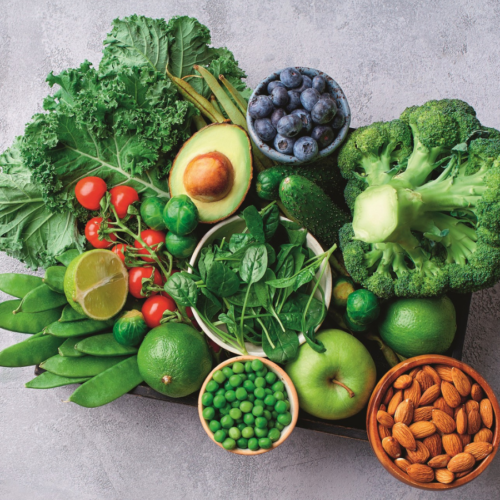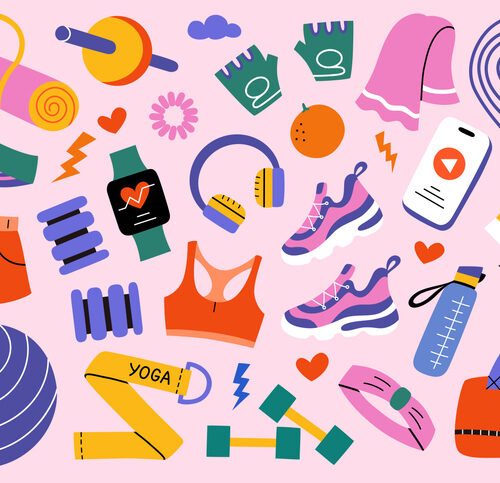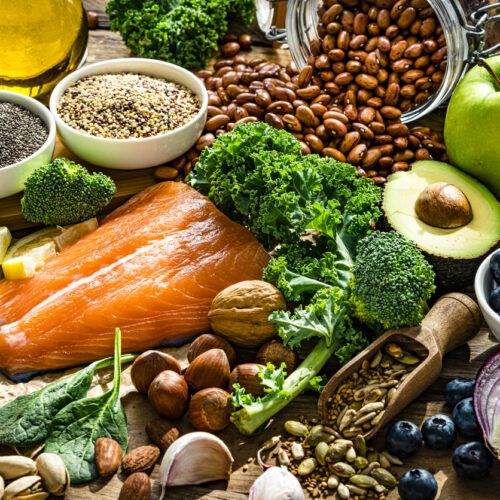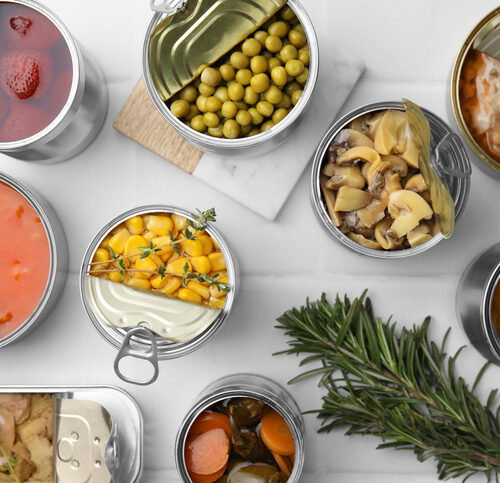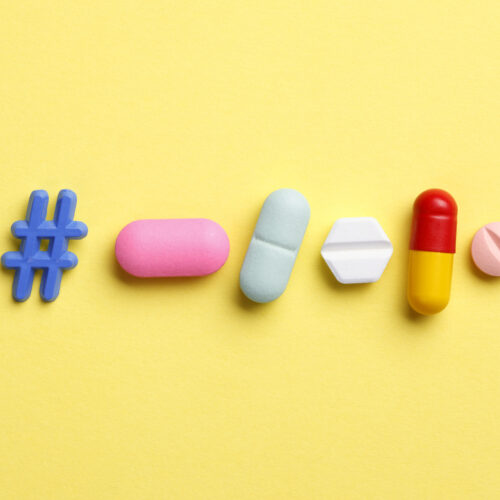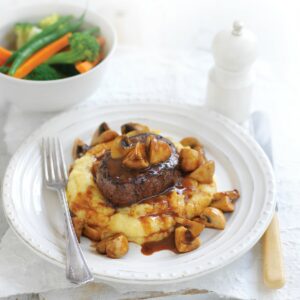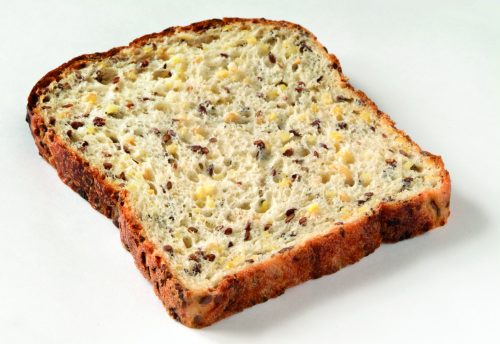
Nutritionist Rose Carr explains how to get the essential Bs.
Meet the Bs
Some Bs are better known by their scientific name and others by their number. They are thiamin (B1), riboflavin (B2), niacin (B3), pantothenic acid (B5), pyridoxine (B6), biotin (B7), folate (B9) and cobalamin (B12).
Why we need Bs
The individual B vitamins all have unique functions within our bodies but most of them help our bodies produce energy from our food. B vitamins are water soluble and not generally stored in the body, so a regular supply is best. Any excess – rather than producing more energy – is just excreted.
How to get them
B vitamins are found in protein foods such as meat, poultry, fish, eggs and dairy products, whole grains such as rice and dark leafy greens. Vitamin B12 is only found in animal foods whereas folate is more abundant in plant foods. Pantothenic acid (B5) is found in almost all foods, while biotin (B7) is made by our intestinal flora as well as being in some foods.
Where to get your B vitamins
Each of these food combinations provides a minimum of 10 per cent of the daily recommended dietary intake (RDI) for each of the B vitamins, but mostly lots more.
- 125g grilled steak + 1/2 cup cooked peas = especially high in niacin and B12
- 2 slices multigrain bread + 2 teaspoons Marmite = especially high in thiamin, riboflavin and folate
- Boiled pasta (100g dried) + small can salmon + 1/2 cup steamed spinach = especially high in niacin and B12
- 125g grilled chicken + 1/2 cup steamed broccoli = especially high in niacin, over 75% RDI for B6
Did you know? Beriberi, caused by a deficiency of thiamin (B1), reached an epidemic scale in Asia in the 19th century following the introduction of steam-powered rice mills which made polished, white rice readily available.
www.healthyfood.com


